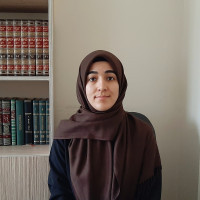Araştırma Makalesi / Research Article
Issue Editorial Board

 0000-0002-6117-7059
0000-0002-6117-7059

 0000-0002-3254-5350
0000-0002-3254-5350

 0000-0003-4126-4187
0000-0003-4126-4187



 0000-0001-7128-9006
0000-0001-7128-9006

Aim & Scope
Kalemname Journal is a peer-reviewed, scientific, and academic journal published online twice a year. The primary objective of the journal is to make a lasting contribution to Turkish intellectual and cultural life by publishing original and scholarly research with academic merit at both national and international levels. Focusing particularly on high-quality studies in the fields of social sciences and religious studies, Kalemname aims to serve as a reliable and reference-worthy academic source in these areas. The journal evaluates submissions rigorously within the framework of universal publishing principles and academic ethical standards, accepting for publication only those studies that offer a meaningful contribution to scholarly knowledge. Kalemname Journal is fundamentally committed to presenting academic works that address essential issues of intellectual life, possess theoretical depth, and contribute meaningfully to their respective fields, following a meticulous peer-review process.
The scope of Kalemname Journal encompasses scholarly publications in the fields of religious studies and the social sciences that possess the potential to contribute to the academic literature. In this regard, the journal welcomes original and field-contributing studies that adhere to scientific standards and publishing principles, and that are prepared within the framework of applicable legal and ethical guidelines. Accordingly, studies may be published in all areas of the social sciences in which academic research is conducted and educational activities are carried out, particularly within the departments and faculties of Theology, Islamic Studies, Religious Sciences, Arts and Sciences, and Humanities and Social Sciences established in Türkiye, provided that they are original, contribute to the field, and comply with current legal regulations, scientific standards, and publishing principles. The primary language of writing and publication in Kalemname Journal is Turkish. However, with the approval of the editorial board, up to 30% of each issue may include works written in English, Arabic, or German. The journal’s target audience consists of academics, researchers, professionals, students, and relevant scholarly and institutional bodies. Articles submitted for publication in Kalemname Journal must be scientific, original, contribute to the relevant field, and adhere to academic conventions in language and style. The journal accepts various types of academic submissions, including original research articles, translations, critical editions, book reviews, research notes, and evaluations of academic events.
Subject Categories
Religious Studies:
- Basic Islamic Studies
- Islamic History and Arts
- Philosophy and Religious Studies
Social Sciences:
- Language, Communication, and Culture
- Education
- Economics
- Philosophy
- Human and Society Studies
- Psychology
- Arts and Literature
- Sociology
- History, Heritage, and Archaeology
- Turkish Language and Literature
- Turkish Folklore
Author Guidelines
1. Articles submitted to Kalemname Journal must be prepared using Microsoft Word and uploaded simultaneously with all other required submission documents. Translations must be submitted together with their original texts. If the article includes visual elements such as images, tables, or diagrams, these must be uploaded separately through the submission system as additional files.
2. Article titles must be provided in both Turkish and English. Authors must include their full names, academic titles, institutional affiliations, ORCID IDs, and contact information (e-mail, etc.).
3. The length of a research article, including the abstract, keywords, references, and footnotes, must not exceed ten thousand (10,000) words.
4. Articles must include a Turkish abstract and its English version (abstract), each consisting of 150 to 200 words. For articles written in a foreign language, both Turkish and English abstracts and keywords must be provided. At least five (5) keywords should be listed in both Turkish and English, ordered from general to specific. All articles must include a bibliography prepared in accordance with the 2nd edition of the ISNAD Citation Style.
5. Articles written in Turkish or English must include both Turkish and English titles and abstracts. Articles written in Arabic or German must include titles and abstracts in three languages: Turkish, English, and the language of the article. Additionally, Arabic articles must include a bibliography prepared in Latin script. For Turkish and English articles, the Turkish and English title and abstract sections must be complete. For Arabic articles, the Arabic, Turkish, and English title and abstract sections must be complete. Likewise, for German articles, the German, Turkish, and English title and abstract sections must be fully provided.
6. Kalemname Journal, within the framework of academic writing and publication ethics, requires the use of the most up-to-date version of the ISNAD Citation Style in all submitted articles. The journal reserves the right to reject or request revisions for any submission that does not comply with the latest version of this citation system. Authors are responsible for checking the conformity of their articles with the ISNAD Citation Style and must make all necessary adjustments carefully before submission. Detailed information, templates, and sample applications regarding the ISNAD Citation Style are available on its official website: https://isnadsistemi.org
7. Editors, associate editors, and pre-review editors reserve the right to make minor changes to submissions, such as correcting spelling errors. In terms of spelling and punctuation, unless specific exceptions are required by the academic field of the work (e.g., transcription), the current dictionary and spelling guide of the Turkish Language Association (TDK) should be taken as the standard. Consistency must be maintained throughout the text in the spelling of words that involve circumflex accents or other special usages.
8. In multi-author studies, the contribution rate of each author must be clearly stated. The “Conflict of Interest and Author Contribution Statement Form” must be uploaded as a supplementary file through the DergiPark system and submitted to Kalemname Journal.
9. Artificial intelligence (AI) tools may only be used for surface-level editing purposes such as grammar, spelling, and stylistic consistency, with the aim of minimizing human error. Beyond these functions, the direct use of AI for content generation, constructing scientific arguments, conducting literature reviews, or drawing conclusions is not recommended, as these fall within the scope of academic responsibility. In accordance with the journal’s AI Policy, the “Artificial Intelligence (AI) Use Declaration Form” must be uploaded as a supplementary file via the DergiPark system and submitted to Kalemname Journal.
10. In generating similarity reports, widely recognized digital tools -primarily turnitin.com and iintihal.net- are used. One of the journal’s minimum publication requirements is that the total similarity index must not exceed 15%. This threshold refers not only to the overall similarity percentage but also includes the proportion of content matched from individual sources. Excessive quotations from a single source may be evaluated negatively, even if the total similarity rate remains below the threshold, as such practices may compromise academic integrity. If the similarity rate exceeds the upper limit or if any element of the article is found to violate academic ethical standards, the editorial board reserves the right to reject the submission outright or request revisions. In such cases, authors will be contacted for clarification and may be asked to provide a justified explanation. For detailed information and evaluation principles regarding similarity reports, please refer to the author guideline document available at the following link: https://dergipark.org.tr/tr/download/journal-file/26097
11. Ethics committee approval is required for all research conducted using qualitative or quantitative methods that involve data collection from participants through techniques such as surveys, interviews, focus group studies, observations, experiments, or similar methods; for the use of humans and animals (including materials/data) for experimental or other scientific purposes; for clinical studies conducted on humans; for studies involving animals; and for retrospective studies in accordance with the Law on the Protection of Personal Data. The relevant ethics committee approval document must be submitted to the journal in which the study is to be published. If the submitted article does not fall within the scope requiring ethics committee approval, the author(s) must complete the "Ethics Statement Form for Studies Not Requiring Ethics Committee Approval" declaring that the study does not require such approval and that no ethical principles were violated during the research and publication process. If the study in question requires ethics committee approval, the author(s) must complete the “Ethics Statement Form for Studies with Ethics Committee Approval” and attach the official ethics committee approval document to the form.
12. In a single issue, only one work by the same author -regardless of whether it is an original article, translation, or any other type- is allowed to be published.
13. During the publication process, authors are obliged to provide any additional information or documents requested by the journal administration.
14. The main text must be prepared in Microsoft Word using Cambria font, 11-point size, 1.5 line spacing, and justified alignment. Page margins should be set to 3 cm at the top and bottom, and 2.5 cm on the left and right. Footnotes must be formatted in Cambria, 9-point size, single-spaced, and justified. Detailed formatting guidelines can be found in the Article Writing Template document.
15. Submissions must be prepared in accordance with the journal’s writing guidelines and uploaded to the system via DergiPark. The writing rules and article template to be followed in your submissions can be accessed through Kalemname Journal’s page on the DergiPark platform.
Article Submission Guide for Authors:
Article Writing Template: https://dergipark.org.tr/tr/download/journal-file/14727
Writing Template and Guidelines for Articles Written in Languages Other Than Turkish: https://dergipark.org.tr/tr/download/journal-file/15763
Kalemname Journal Copyright Transfer Agreement Form: https://dergipark.org.tr/tr/download/journal-file/13022
Ethics Statement Form for Studies Not Requiring Ethics Committee Approval: https://dergipark.org.tr/tr/download/journal-file/26096
Declaration Form of Artificial Intelligence (AI) Usage: https://dergipark.org.tr/tr/download/journal-file/34493
Information to Authors About Similarity Report: https://dergipark.org.tr/tr/download/journal-file/26097
Conflict of Interest and Author Contribution Statement Form: https://dergipark.org.tr/tr/download/journal-file/34494
Ethics Statement Form for Studies with Ethics Committee Approval: https://dergipark.org.tr/tr/download/journal-file/34492
Ethical Principles and Publication Policy
Publication Policy
- Kalemname Journal is published by the Faculty of Islamic Sciences at Kırıkkale University.
- Kalemname Journal is a scientific, academic and peer-reviewed journal in the fields of social sciences and religious studies. The journal is published twice a year, in June and December. In necessary cases, special or additional issues may be published in addition to these issues.
- The article acceptance period for the June issue of Kalemname Journal begins in February and ends in mid-April. The article acceptance period for the December issue of Kalemname Journal begins in August and ends in mid-October. If a sufficient number of articles is reached, the submission process may be closed before the specified publication dates.
- Kalemname shall be used as the standard abbreviation for Kalemname Journal in all languages.
- The primary language of writing and publication for Kalemname Journal is Turkish. However, upon the decision of the editorial board and the editor, articles written in English, Arabic, or German may be included in each issue, provided that they do not exceed 30% of the total content.
- Authors whose works are published in Kalemname Journal are deemed to have accepted that the copyright and publication rights belong to Kalemname Journal. During the article submission process, the “Kalemname Journal Copyright Transfer Agreement Form” must be completed by the author(s) and uploaded to the system. Authors bear full responsibility for the content, scientific accuracy, legal compliance, and language quality of their work. All studies published in the journal are subject to editorial approval before publication.
- Articles submitted for publication in Kalemname Journal must be scientific, original, contribute to the field, and employ language and style in accordance with academic conventions. Kalemname Journal publishes academically qualified works such as research articles, translations, critical editions, book reviews, research notes, and evaluations of scholarly events.
- In order for articles to be published in Kalemname Journal, they must not have been previously published, submitted to another venue for consideration, or accepted for publication elsewhere. Additionally, articles that exhibit substantial similarity to any previously published work will not be considered for review.
- During the publication process, authors are obliged to provide any additional information or documents requested by the journal’s editorial board.
- In a single issue, only one work by the same author may be published, regardless of whether it is an original article, translation, or another type of contribution.
- For articles requiring data collection from individuals through tools such as scales, surveys, or interviews, it is mandatory to obtain approval from the ethics committee of the author’s affiliated university. The “Ethics Statement Form for Studies with Ethics Committee Approval” must be uploaded as a supplementary file via the DergiPark system and submitted to Kalemname Journal.
- The “Ethics Statement Form for Studies Not Requiring Ethics Committee Approval” must be uploaded as a supplementary file via the DergiPark system and submitted to Kalemname Journal by all authors submitting articles that do not require ethics committee approval.
- In accordance with the Artificial Intelligence Policy, the “Declaration Form of Artificial Intelligence (AI) Usage” must be uploaded as a supplementary file via the DergiPark system and submitted to Kalemname Journal.
- In multi-authored studies, the contribution rate of each author must be explicitly stated. The “Conflict of Interest and Author Contribution Statement Form” must be uploaded as a supplementary file via the DergiPark system and submitted to Kalemname Journal.
- Except for academic staff, articles submitted by authors who do not hold an academic title or are not at the dissertation stage of their doctoral studies will not be published. As an exception, articles by authors in this category may be published in Kalemname Journal if the article is related to their doctoral dissertation or co-authored with a scholar who holds an academic title. Authors who are at the dissertation stage of their doctoral studies must submit a document verifying this status as a supplementary file to the journal. Additionally, if the article is written in a foreign language, it may be considered for review only with the approval of the editorial board and the editors. In research articles derived from a thesis, the student must be listed as the first author, and the advisor as the second author.
- Kalemname Journal is committed to the principle of open access. In line with this principle, all articles published in the journal are made freely accessible to readers without any fees, subscription, or registration requirements. Each article published in the journal is preserved and publicly archived through the DergiPark system in accordance with long-term digital archiving principles.
- Kalemname Journal employs a double-blind peer review system. Articles are published only if they meet the required criteria following the evaluation of at least two reviewers. For an article to be accepted, both reviewers must submit a positive report. If only one of the two reviewers provides a favorable opinion, a third reviewer is consulted. In cases where revisions are suggested, and reviewers request to see the article again after revisions, the revised article is resubmitted to the reviewers. The final decision regarding the publication of articles rests with the editors, based on the scientific evaluation process.
- As a peer-reviewed, scientific, and academic journal, the editorial board of Kalemname maintains an equal distance to all ideologies and viewpoints that do not contravene the provisions of the Turkish Penal Code (TCK). Editors, reviewers, and all individuals or committees contributing to the journal commit to acting in accordance with the principles of impartiality and merit.
- Believing in authors’ right to express their own views, the journal’s editorial board nonetheless does not permit any form of scientific or ideological manipulation in submitted works.
- During the publication process, editors and reviewers are obligated to maintain the confidentiality of the submitted works. No article may be shared with third parties prior to publication. Any breaches of confidentiality will be subject to formal complaint and legal action.
- The editorial board of Kalemname Journal upholds universal moral values, academic ethical principles, the rule of law, and the dignity of human life and thought. It also believes in the global significance of intellectual life and the civilizations shaped by diverse cultures in all their components. Without discrimination, the board aims to publish works that contribute -within the context of the humanities and natural sciences- to these structures and to human existence as a whole, in terms of science, art, and various “values” and “principles.”
- Authors participating in the publication process are obliged to adhere to ethical standards. In cases where plagiarism or other actions constituting a criminal offense are identified, the relevant authorities will be notified, and the submission in question will be rejected.
- Authors bear full responsibility for any issues that may arise after publication which, although not identified prior to publication, constitute a criminal offense under the Turkish Penal Code (TCK).
- Authors wishing to publish in Kalemname Journal, as well as all other parties involved in the journal’s processes, are deemed to have accepted the aforementioned conditions.
Policy on Similarity Reports and Plagiarism Detection
Kalemname Journal adopts a publication policy that prioritizes academic integrity and publishing ethics. In this context, all articles submitted to our journal are subjected to similarity analysis using plagiarism detection software. This process is carried out to verify that the submitted work has not been previously published and does not contain plagiarism. In generating similarity reports, widely recognized digital tools -primarily turnitin.com and intihal.net- are used. Ensuring that the total similarity index resulting from the evaluation does not exceed 15% is a minimum publication requirement of our journal. The specified percentage covers not only the total similarity index but also the proportion of quotations taken from individual sources. Extensive quotations from a single source are evaluated negatively in terms of academic integrity, even if the overall similarity index remains low. If the detected similarity rate exceeds this threshold or if any violation of academic ethical principles is identified, the editorial board reserves the right to either reject the article outright or request revisions. In such cases, the authors are contacted for clarification, and a justified explanation may be requested. If elements of plagiarism are identified in a published article at a later stage, the editorial board reserves the right to take various actions, including retracting the article and notifying the head of the department, the dean, and relevant authorities at the author’s affiliated institution. For detailed information and evaluation principles regarding the similarity report, please refer to the author information document available at the following link: https://dergipark.org.tr/tr/download/journal-file/26097
Policy on the Use of Artificial Intelligence (AI)
This artificial intelligence policy aims to establish the ethical and scientific principles regarding the use of AI technologies in articles submitted to Kalemname Journal. The primary objective of this policy is to ensure the proper, transparent, and ethical use of AI in academic writing and scientific analysis, while also safeguarding data security and academic integrity. Kalemname Journal is committed to closely following developments in the field of AI and to regularly updating this policy accordingly. This policy is consistent with the journal’s ethical principles and publication policies, and serves to support them.
AI tools may be used solely for surface-level edits -such as grammar, spelling, and stylistic consistency- with the aim of reducing human error. Beyond this, the use of AI -whether directly or indirectly- is not recommended in areas of academic responsibility such as content creation, development of scientific arguments, literature evaluation, or drawing conclusions.
Texts, images, tables, or analyses generated entirely by AI should not be conflated with the author’s original academic contribution. In cases of suspected AI use, the editorial board and editors may subject the article to additional ethical review and, if necessary, request a statement of clarification from the author. In such cases, the journal reserves the right to return the article or decline its publication. Kalemname Journal also commits to not using AI tools in its review and editorial processes.
Publication and Evaluation Fee
Kalemname Journal operates with an understanding that prioritizes the accessibility of academic publishing and the promotion of scholarly production. In line with this principle, Kalemname Journal does not request any fees for submission, evaluation, or publication of articles. Additionally, no royalties are paid to authors for articles published in Kalemname Journal. All articles published in the journal are openly accessible and made available to readers free of charge. This practice, as part of our open access publishing philosophy, aims to encourage the unrestricted dissemination of scientific knowledge.
Ethical Principles
Kalemname Journal is committed to upholding high standards of publication ethics and adhering to the following ethical principles. These principles are based on the recommendations and guidelines developed for journal editors by the Committee on Publication Ethics (COPE), the Council of Science Editors (CSE), the World Association of Medical Editors (WAME), and the International Committee of Medical Journal Editors (ICMJE).
All parties involved in Kalemname Journal are expected to uphold ethical responsibilities in matters of publication ethics. In this context, Kalemname Journal is committed to following the Code of Conduct and the Principles of Transparency and Best Practice prepared by the Committee on Publication Ethics (COPE). Adhering to the COPE Guidance for Editors is part of the editors’ responsibilities, while the COPE Ethical Guidelines for Peer Reviewers must be observed by the journal’s reviewers.
Within the scope of its publication ethics, Kalemname Journal expects all parties involved to uphold the following ethical responsibilities.I) Responsibilities of Authors:
- Only individuals who meet the authorship criteria should be included as authors in the study. All listed authors must have contributed to the research, and their contribution ratios must be specified. Unjustified authorship is unacceptable.
- Authors must avoid all actions that violate the ethics of scientific research and publishing, including plagiarism, data fabrication, falsification, salami publication, and duplicate submission. As part of this responsibility, all authors submitting to the journal are required to provide a similarity report.
- All data presented in the study must be accurate and original.
- Authors must comply with the journal’s writing guidelines and provide all essential elements, including a complete bibliography. Articles that have been previously published in another journal or book must not be submitted for review. Simultaneous submission of the same article to multiple journals is considered unethical publishing behaviour.
- For research conducted with external support, the individuals, institutions, or organizations providing that support must be acknowledged, and their contributions to the research must be clearly stated.
- Authors are obligated to participate in the peer-review process and to fully cooperate with editors by responding to data requests, providing clarifications, and submitting evidence of ethical approval and copyright permissions. If a revision is requested, authors must systematically address the reviewers’ comments and resubmit the revised article within the specified deadline.
- Authors should not interpret reviewers’ comments as personal criticism; instead, they should respond and revise their work within academic boundaries. When necessary, authors should reply to criticisms in line with academic standards.
- During the publication process, authors are required to submit any additional information or documents requested by the journal’s editorial board.
II) Responsibilities of Reviewers
- Reviewers are expected to contribute to the editorial decision-making process.
- Reviews must be objective and based on academic and scientific criteria. Evaluations should focus solely on the scholarly merit of the work, and no personal criticism of the authors should be made.
- The standard period for completing a review is 14 days. If additional time is required, and it does not hinder the journal’s publication process, the editor may grant an extension. The key priority is to assist authors in improving their articles through constructive editorial communication.
- If a reviewer feels unqualified to evaluate the research topic or is unable to meet the review deadline, they must notify the editor and decline the review invitation so that an alternative reviewer can be assigned and the process can proceed without delay.
- If the content of the article falls outside the reviewer’s area of expertise, they should not accept the review invitation.
- Articles under review must not be shared with others, and reviewers must not use any data or ideas from the article in their own work before its publication. Reviewers are responsible for maintaining the confidentiality of both the author and the article. All submissions are confidential, even for reviewers who decline the review invitation.
- Reviewers must avoid any conflicts of interest or relationships of shared benefit with the authors or supporting institutions.
- Reviewers should identify relevant published works that have not been cited by the authors. If a reviewer becomes aware of substantial similarity between the article under review and another published work, they must inform the editor.
- When evaluating articles, reviewers must refrain from allowing personal biases or value judgments to override academic objectivity and scientific neutrality and must ensure their critiques are constructive in nature.
III) Responsibilities of Editors
- Articles submitted for publication are evaluated solely and entirely based on academic and scientific merit. Discriminatory factors such as authors’ affiliations, gender, religion, race, ethnicity, or institutional ties shall never influence the evaluation process.
- The relationship between the editor and the publisher is based on the principle of editorial independence.
- Editors hold full authority and responsibility for accepting or rejecting articles.
- Editors must avoid any conflict of interest with respect to the articles they accept or reject.
- Editors ensure that all accepted articles are subjected to peer review by at least two reviewers who are experts in the field. When necessary, a third reviewer is assigned.
- Editors must support the publication of corrections or retractions when errors or omissions are identified.
- Editors must maintain reviewer anonymity and prevent the publication of articles that violate publication ethics, particularly in cases of plagiarism, data fabrication, or unjustified authorship.
- The content of articles submitted to Kalemname Journal but not published may not be used by the editor or the editorial board. Confidentiality is essential.
- Editors coordinate with the journal’s boards throughout all stages of the publication process to ensure that procedures are conducted in line with the journal’s publication policies and guidelines.
- Editors are responsible for ensuring that each article published in the journal complies with the journal’s policies and international publishing standards.
- Editors are obliged to review complaints and provide clear and informative responses to authors, reviewers, or readers when necessary.
Price Policy
The entire process of article publication is free of charge.
Kırıkkale University, Faculty of Islamic Sciences Campus, 71450 Yahşihan / Kırıkkale, Türkiye.
kalemnamedergi@gmail.com | e-ISSN: 2651-3595
Social Media Accounts:
Twitter: @kalemnamedergi • Instagram: @kalemnamedergi
Indexes




